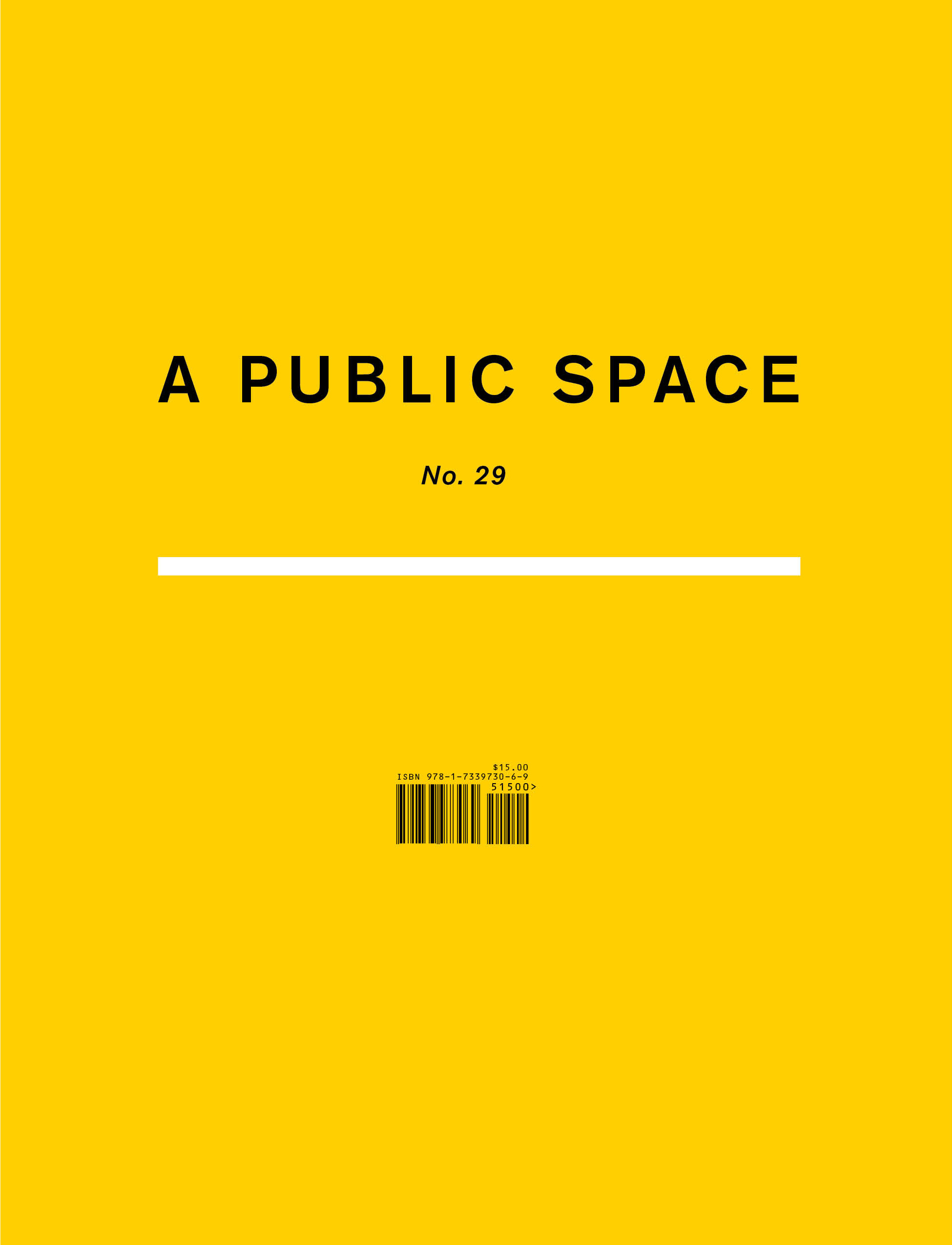Fiction
Dublin, We Were
David Hayden
Log in to read the rest.
If you are a subscriber but do not currently have online access, please contact us to link your subscription at subscribe@apublicspace.org
Not a subscriber?
Not yet a subscriber? Join us now, and become a part of the conversation.
About the author
David Hayden is the author of story collection Darker with the Lights On (Transit) and contributor to anthology Being Various: New Irish Short Stories (Faber & Faber).
